
Apple Inc. is an American multinational corporation and technology company headquartered in Cupertino, California, in Silicon Valley. It designs, develops, and sells consumer electronics, computer software, and online services. Devices include the iPhone, iPad, Mac, Apple Watch, Vision Pro, and Apple TV; operating systems include iOS, iPadOS, and macOS; and software applications and services include iTunes, iCloud, Apple Music, and Apple TV+.

The Apple Computer 1 (Apple-1), later known predominantly as the Apple I, is an 8-bit motherboard-only personal computer designed by Steve Wozniak and released by the Apple Computer Company in 1976. The company was initially formed to sell the Apple I – its first product – and would later become the world's largest technology company. The idea of starting a company and selling the computer came from Wozniak's friend and Apple co-founder Steve Jobs. One of the main innovations of the Apple I was that it included video display terminal circuitry and a keyboard interface on a single board, allowing it to connect to a low-cost composite video monitor instead of an expensive computer terminal, compared to most existing computers at the time. Contrary to popular belief, it was not the first personal computer to include such video output, predated by machines such as the Sol-20 and add-in cards such as the VDM-1.
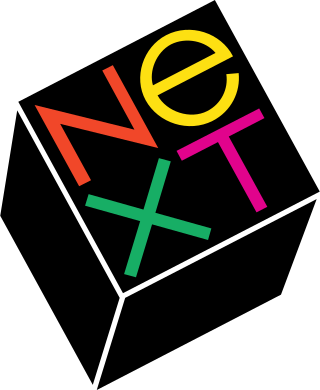
NeXT, Inc. was an American technology company headquartered in Redwood City, California that specialized in computer workstations for higher education and business markets, and later developed web software. It was founded in 1985 by CEO Steve Jobs, the Apple Computer co-founder who had been forcibly removed from Apple that year. NeXT debuted with the NeXT Computer in 1988, and released the NeXTcube and smaller NeXTstation in 1990. The series had relatively limited sales, with only about 50,000 total units shipped. Nevertheless, the object-oriented programming and graphical user interface were highly influential trendsetters of computer innovation.

Lisa is a desktop computer developed by Apple, released on January 19, 1983. It is generally considered the first mass-market personal computer operable through a graphical user interface (GUI). In 1983, a machine like the Lisa was still so expensive that it was primarily marketed to individual and small and medium-sized businesses as a groundbreaking new alternative to much bigger and more expensive mainframes or minicomputers such as from IBM, that either require additional, expensive consultancy from the supplier, hiring specially trained personnel, or at least, a much steeper learning curve to maintain and operate. Earlier GUI-controlled personal computers were not mass-marketed; for example, the Xerox Alto was manufactured only for Xerox and select partners through Xerox PARC from the early to mid-1970s.
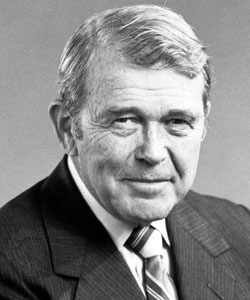
William Redington Hewlett was an American engineer and the co-founder, with David Packard, of the Hewlett-Packard Company (HP).

"1984" is an American television commercial that introduced the Apple Macintosh personal computer. It was conceived by Steve Hayden, Brent Thomas, and Lee Clow at Chiat/Day, produced by New York production company Fairbanks Films, and directed by Ridley Scott. The ad was an allusion to George Orwell's noted 1949 novel, Nineteen Eighty-Four, which described a dystopian future ruled by a televised "Big Brother". English athlete Anya Major performed as the unnamed heroine and David Graham as Big Brother. In the US, it first aired in 10 local outlets, including Twin Falls, Idaho, where Chiat/Day ran the ad on December 31, 1983, at the last possible break before midnight on KMVT, so that the advertisement qualified for the 1984 Clio Awards. Its second televised airing, and only US national airing, was on January 22, 1984, during a break in the third quarter of the telecast of Super Bowl XVIII by CBS.
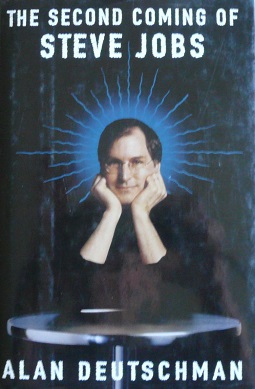
The Second Coming of Steve Jobs is an unauthorized biography chronicling the life of Steve Jobs, a co-founder of Apple Inc by Vanity Fair magazine writer Alan Deutschman. It covers his period at NeXT, success at Pixar and his comeback to Apple followed by the introduction of iMac.
Jeffrey L. Robbin is an executive and software engineer at Apple, Inc. He developed the SoundJam music player software, which was acquired by Apple in 2000. There, he created iTunes, and was "closely involved" with the iPod's development. In 2011, Bloomberg reported that he was leading development of an Apple television set, a device rumored in Steve Jobs's autobiography. As of 2018, he led the Apple Music product and engineering teams.
Armas Clifford "Mike" Markkula Jr. is an American electrical engineer, businessman and investor. He was the original angel investor, first chairman, and second CEO for Apple Computer, Inc., providing critical early funding and managerial support. At the company's incorporation, Markkula owned 26% of Apple, equivalent to each of the shares owned by cofounders Steve Jobs and Steve Wozniak.
Guy L. "Bud" Tribble was Vice President of Software Technology at Apple Inc.

Alvy Ray Smith III is an American computer scientist who co-founded Lucasfilm's Computer Division and Pixar, participating in the 1980s and 1990s expansion of computer animation into feature film.

Walter Seff Isaacson is an American author, journalist, and professor. He has been the president and CEO of the Aspen Institute, a nonpartisan policy studies organization based in Washington, D.C., the chair and CEO of CNN, and the editor of Time.

Apple Inc., originally Apple Computer, Inc., is a multinational corporation that creates and markets consumer electronics and attendant computer software, and is a digital distributor of media content. Apple's core product lines are the iPhone smartphone, iPad tablet computer, and the Macintosh personal computer. The company offers its products online and has a chain of retail stores known as Apple Stores. Founders Steve Jobs, Steve Wozniak, and Ronald Wayne created Apple Computer Co. on April 1, 1976, to market Wozniak's Apple I desktop computer, and Jobs and Wozniak incorporated the company on January 3, 1977, in Cupertino, California.
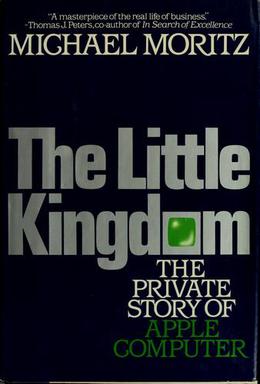
The Little Kingdom: The Private Story of Apple Computer is the first book that documented the development of Apple Computer. It was published in 1984 and written by then-Time Magazine reporter Michael Moritz. While Steve Jobs initially cooperated with Moritz, he ended communication in the middle of the project and did not authorize the published final version. Moritz reissued an updated version of the book in 2009 as Return to the Little Kingdom: Steve Jobs, the Creation of Apple, and How It Changed the World.
Alex Fielding is an American engineer and manager. He is the CEO and co-founder of Privateer Space, a space startup with a global online marketplace that aims to connect customers seeking planetary data with orbiting satellites and AI. He co-founded the company with Apple co-founder Steve Wozniak and MacArthur Genius Moriba Jah. Privateer announced in 2023 that it had grown the business from the Google Maps of space to become the first AI powered space data ride sharing platform with an upcoming satellite autopilot system called Pono set to fly on SpaceX in December 2023. The International Space Station National Labs, in partnership with Privateer announced a deal whereby Privateer publicly tracks and displays mission data on International Space Station telemetry, astronauts, and mission objectives live on the ISS National Labs website. He was co-founder and CEO of robotics company Ripcord, Inc from 2014 to 2021.
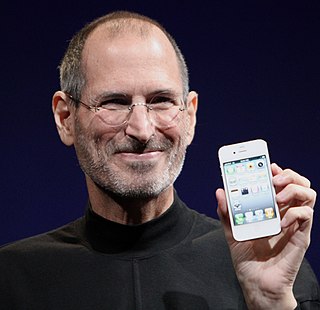
Steven Paul Jobs was an American businessman, inventor, and investor best known for co-founding the technology giant Apple Inc. Jobs was also the founder of NeXT and chairman and majority shareholder of Pixar. He was a pioneer of the personal computer revolution of the 1970s and 1980s, along with his early business partner and fellow Apple co-founder Steve Wozniak.
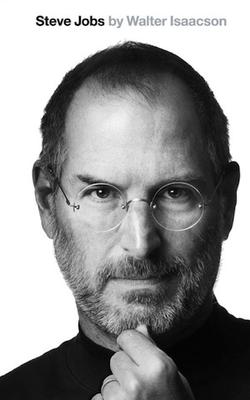
Steve Jobs is the authorized self-titled biography of American business magnate and Apple co-founder Steve Jobs. The book was written at the request of Jobs by Walter Isaacson, a former executive at CNN and Time who had previously written best-selling biographies of Benjamin Franklin and Albert Einstein.

Becoming Steve Jobs: The Evolution of a Reckless Upstart into a Visionary Leader by journalists Brent Schlender and Rick Tetzeli, is an unauthorized biography of Steve Jobs. Rick Tetzeli is Executive Editor of Fast Company and Brent Schlender is a writer, editor, and author, best known for his award-winning magazine profiles of prominent entrepreneurs and business leaders of the Digital Revolution. The book was released on 24 March 2015 by Crown Business in the US.

Frederick Rodney Holt is an American electrical engineer and political activist. He is Apple employee #5, and developed the unique power supply for the 1977 Apple II. Actor Ron Eldard portrayed him in the 2013 film, Jobs.















